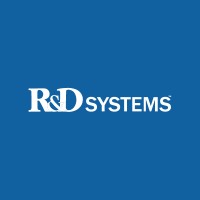CD85a Monoclonal / PE / 222821
Product Details
| Description | Human LILRB3/CD85a/ILT5 PE-conjugated Antibody | |
|---|---|---|
| Conjugate | PE | |
| Clone | 222821 | |
| Target Species | Human | |
| Applications | FC | |
| Supplier | R&D Systems | |
| Catalog # | Sign in to view product details, citations, and spectra | |
| Size | ||
| Price | ||
| Antigen | ||
| Host | ||
| Isotype |
About CD85a
This gene is a member of the leukocyte immunoglobulin-like receptor (LIR) family, which is found in a gene cluster at chromosomal region 19q13.4. The encoded protein belongs to the subfamily B class of LIR receptors which contain two or four extracellular immunoglobulin domains, a transmembrane domain, and two to four cytoplasmic immunoreceptor tyrosine-based inhibitory motifs (ITIMs). The receptor is expressed on immune cells where it binds to MHC class I molecules on antigen-presenting cells and transduces a negative signal that inhibits stimulation of an immune response. It is thought to control inflammatory responses and cytotoxicity to help focus the immune response and limit autoreactivity. Multiple transcript variants encoding different isoforms have been found for this gene. [provided by RefSeq, Jul 2008]
This gene is a member of the leukocyte immunoglobulin-like receptor (LIR) family, which is found in a gene cluster at chromosomal region 19q13.4. The encoded protein belongs to the subfamily B class of LIR receptors which contain two or four extracellular immunoglobulin domains, a transmembrane domain, and two to four cytoplasmic immunoreceptor tyrosine-based inhibitory motifs (ITIMs). The receptor is expressed on immune cells where it binds to MHC class I molecules on antigen-presenting cells and transduces a negative signal that inhibits stimulation of an immune response. It is thought to control inflammatory responses and cytotoxicity to help focus the immune response and limit autoreactivity. Multiple transcript variants encoding different isoforms have been found for this gene. [provided by RefSeq, Jul 2008]
About PE
Phycoerythrin (PE, R-PE) is a red-emitting fluorescent protein-chromophore complex that can be excited the 488-nm blue, 532-nm green, or 561-nm yellow-green laser with increasing efficiency and captured with a 586/14 nm bandpass filter. PE has an excitation peak at 565 nm and an emission peak at 578 nm. PE is 240kD in size and has an extinction coefficient of ~2x10^6 which makes it one of the brightest fluorophores available and a potent donor upon which to build tandem fluorophores with longer Stoke's Shifts.
Phycoerythrin (PE, R-PE) is a red-emitting fluorescent protein-chromophore complex that can be excited the 488-nm blue, 532-nm green, or 561-nm yellow-green laser with increasing efficiency and captured with a 586/14 nm bandpass filter. PE has an excitation peak at 565 nm and an emission peak at 578 nm. PE is 240kD in size and has an extinction coefficient of ~2x10^6 which makes it one of the brightest fluorophores available and a potent donor upon which to build tandem fluorophores with longer Stoke's Shifts.
Experiment Design Tools
Panel Builders
Looking to design a Microscopy or Flow Cytometry experiment?
Validation References
Reviews & Ratings
| Reviews |
|---|
Looking for more options?
333 CD85a antibodies from over 18 suppliers available with over 39 conjugates.





